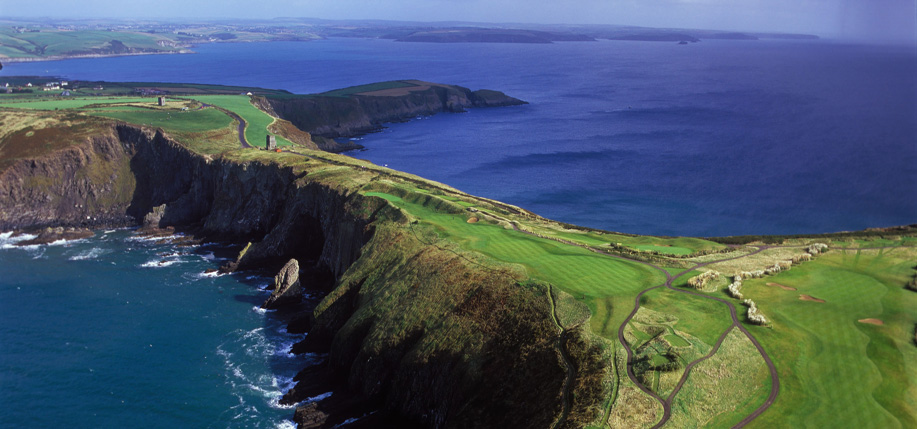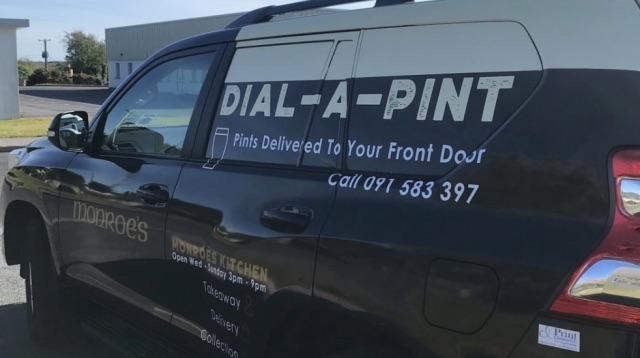As Ireland begins to emerge from its Coronavirus lockdown the national context reminds me of the Billy Joel hit ‘We didn’t start the fire,’ with its staccato allusions to global headline events over a number of years. The COVID-19 pandemic has seen forced, rapid change across every section of Irish society in a matter of months, leading many commentators to ponder what the ’new normal’ will look like when restrictions are eased.
The coronavirus has cost Ireland too many lives, impacting mostly the older population and those with underlying health conditions. As of June 3, there were 25,111 confirmed cases, with 1,659 fatalities.
The pandemic affected the economy, health care, childcare, travel and commuting. It has also created virtual workplaces and virtual babysitting, virtual parties and weddings and funerals, driven innovation in science, business and technology and also the arts and sports.
While people became accustomed to the government’s restrictions, both North and South, the global outrage over the death of George Floyd while in policy custody in Minneapolis, saw hundreds gather on Dublin’s streets to protest racism under the banner ‘Black Lives Matter.
One demonstration saw thousands of people gather in the city centre and march to the US Embassy. The caretaker, Irish Prime Minister (Taoiseach) Leo Varadkar says the world has watched in horror the events following the killing of George Floyd in the US. There has been “genuine revulsion” at the “heavy-handed response” in some instances towards peaceful protesters and journalists, he said.” And we’ve witnessed the absence of moral leadership or words of understanding, comfort or healing from whence they should have come,” he added.
A threatened Irish police investigation into whether protesters breached COVID-19 restriction rules following widespread concerns about the lack of social distancing put paid to plans for a second demonstration on June 8.
From racism to recession – much of the population North and South have been surviving on government pandemic payments and despite dire warnings from caretaker Finance Minister Paschal Donohue of the emergence of a 1980s-style recession following a €6 billion deficit in May, the government in the Republic has announced plans to continue with the weekly payment of €350 for months rather than weeks while reducing the payment for part-time workers by 40%.
Meanwhile, economist David McWilliams challenges the government to ensure “austerity jihadis deep within the Irish establishment don’t impose tax increases and spending cuts on an economy that’s barely breathing.”
And while the debate rages over whether Ireland’s takeover of private hospitals to supplement capacity in the public service should continue, setting the stage for a potential future national health service as exists in Northern Ireland, the media reported Health Minister Simon Harris self-isolated for days last week after displaying coronavirus symptoms.
There have been calls for a public inquiry into why so many COVID-19 deaths occurred in nursing home settings, as 900 nursing home residents have died to date – more than half of all deaths attributed to the disease here.
The Irish Times features an online platform highlighting those we have lost to this pandemic, a stark reminder of the lethal effect of this virus on so many.
But it’s not all doom and gloom. The national broadcaster, RTE, also focuses on the positive things happening across society as people respond to a situation they cannot control – people’s ingenuity and kindness are also hallmarks of this pandemic. Many are raising money for favourite causes, bringing art to the masses online, teaching creative writing to children through online platforms, shopping for neighbours and making PPE and masks for health care workers and others.
Governments North and South have unveiled roadmaps to reopening society – for the Republic of Ireland the government’s plan may now be accelerated as the virus is suppressed in many communities.
Currently some retail outlets such as garden centres and DIY centres are open, some outdoor sports are allowed – golf courses in Ireland reopened on a restricted basis on May 18 – and small groups of family and friends are permitted to meet in the open. Construction and outdoor work has restarted. From June 8 more businesses can reopen, with schools and colleges to reopen in September and October at the beginning of the next academic year. Cafes and restaurants will reopen on June 29 and pubs will reopen on August 10.

In Northern Ireland, where the NISRA (Northern Ireland Statistics and Research Agency) recorded 717 Covid-linked deaths by May 22, large retailers including car showrooms and shops in retail parks can also reopen, and outdoor weddings with 10 people present will be allowed.
Meanwhile, ensuring things are clean and virus free is the new focus – scientists in Galway and Limerick have developed an ultra-violet drone to sterilise public surfaces and help reduce the transmission of coronavirus. The autonomous drone will operate across a wide array of public areas mainly at night when there are no people around. And the government says work is underway to develop a national app for contact tracing and real-time symptom tracking, something which might change the quarantine rules in weeks to come.
September can’t come soon enough for frustrated parents trying to home school their children and for parents who cannot return to work because of the lack of child care facilities. One innovative businesswoman decided to offer virtual babysitting services to give at-home parents a break.
Sporting types are also anxious for restrictions to be eased – including 200 high performance athletes including swimmers, sailors and rowers, who now expect to be able to return to their training bases on June 8, RTE reported. But while athletes can go a bit further from home, others are being advised not to undertake non-essential travel despite pressure from a desperate airline and tourism industry that wants to restart business.
Tánaiste and Minister for Foreign Affairs Simon Coveney has said that over 1,000 Irish citizens are overseas and want to return home and the Department of Foreign Affairs had helped over 6,000 citizens to return from 126 countries by the end of May. Some of those faced another challenge– as all passengers arriving into the country are legally required to complete a COVID-19 passenger locator form making it mandatory for travellers arriving into the airports and ports to tell the State where they will be self-isolating for 14 days.
And many forced to stay home for work simply won’t want to return to offices when the pandemic ends, a new survey from the Whitaker Institute at NUI Galway reveals. 83% of those who took part in a survey on remote working want to continue after the pandemic is over – the new normal.
At least the weather cooperated with lockdown. Ireland enjoyed the sunniest spring on record with lengthy unexpected sunshine and high temperatures driving a spike in people walking, cycling and exercising outdoors. For the more sedentary, the National Concert Hall is streaming concerts and classical music, and if that’s not your thing, Sally Rooney’s Normal People adapted for TV has captured the nation and led to numerous debates about young people’s sexuality.
For those missing the craic of an Irish pub, Monroe’s in Galway is one of a number of pubs offering a dial a pint service – with a custom ‘pintman’ van. And with the news this week that all McDonald’s restaurants are now offering drive though services, well, what more could you want after your few pints?
All we need now is a new government to make the difficult decisions ahead, something that punters predict will happen in the next week or so.
Life in a pandemic. The new normal, for newly normal people.
 Emer Mullins is a public affairs specialist working in the non-profit sector. A former journalist she served as assistant editor at Irish America Magazine, and as a writer for the Irish Voice.
Emer Mullins is a public affairs specialist working in the non-profit sector. A former journalist she served as assistant editor at Irish America Magazine, and as a writer for the Irish Voice.


Leave a Reply